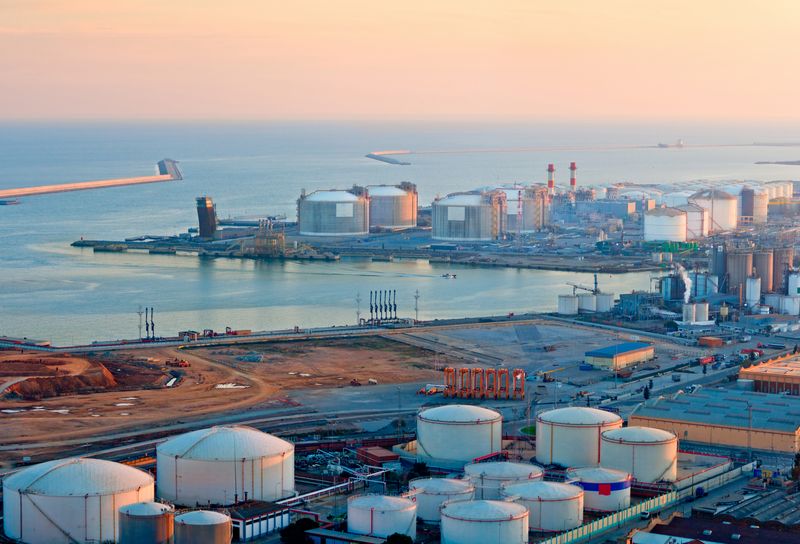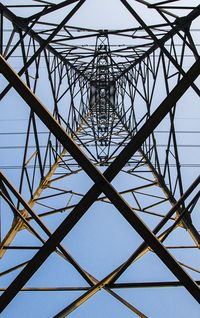Germany is racing ahead to build its LNG regas terminal capacity with Chancellor Olaf Scholz, head of the traffic light Social Democrat, Green Party and Free Democrats governing coalition, stating when the first one was opened at the end of last year "when we work together we can do things at great speed - that's Germany's new tempo." Seven regas terminal are planned. Presumably these terminals need to be fed by gas and that gas needs to be financed.
Germany experienced a sudden dash for overseas gas after the Russian invasion of Ukraine. Until then steady and ultra reliable supplies of cheap Russian gas for decades, even during the height of the Cold War, provided one of the bedrocks of the German economy. But that all changed last February as Germany sought alternative supplies. Despite the federal government's moves there still appears to be a lack of consensus in the banking sector on what constitutes a transition fuel on the way to net-zero and, perhaps more realistically, reducing CO2 emissions.
Is gas a transition fuel? The latest US$7.8bn US LNG financing for Venture Global would suggest it is accepted as such by European banks. ING, Santander, Mizuho, Scotia, and SMBC were lead banks. Additional lenders include BBVA, Bank of America, Bank of China, CaixaBank, Deutsche Bank, Goldman Sachs, ICBC, JP Morgan, LBBW, MUFG, Natixis, RBC, Wells Fargo, National Bank of Canada, KfW IPEX-Bank, Helaba, DZ Bank and Regions Bank.
Indeed, the US LNG sector is racing ahead of itself. In the last year US$33bn has been raised for new US LNG export schemes. In June last year, Venture Global raised US$13.2bn for its Plaquemines LNG facility in Louisiana. Bank of America, Goldman Sachs, ING, JP Morgan, Mizuho, Morgan Stanley and RBC were lead arrangers. Additional lenders included Santander, Bank of China, CaixaBank, Deutsche Bank, ICBC, LBBW, MUFG, Natixis, Nomura, SMBC, Bank of Nova Scotia and Truist Bank.
And in the same month Cheniere Energy raised US$5.5bn for its Corpus Christi LNG scheme phase three in Texas. Societe Generale led the financing. Additional lenders on the term loan included Apple Bank for Savings, Santander, Bank of China, BBVA, Scotia, Bank of America, CaixaBank, CIBC, Credit Agricole, Credit Suisse, DBS Bank, FirstBank Florida, Goldman Sachs, ICBC, ING, JP Morgan Chase, KDB, KEB Hana Bank, KfW IPEX-Bank, Helaba, Mizuho, Morgan Stanley, MUFG, Natixis, Raymond James, RBC, Sabadell, Siemens, SMBC, Standard Chartered, Truist, and Wells Fargo.
And now Venture Global has raised US$7.8bn for its Plaquemines LNG phase two scheme and Sempra has raised US$7bn in debt for its Port Arthur scheme in Texas with equity coming in from a KKR infrastructure fund. More is to come, with NextDecade seeking to raise US$10bn-plus on its Rio Grande LNG scheme in Texas.
While the US sucks in renewables investment via its Inflation Reduction Act (IRA), its export of gas continues apace.
Back in 2019, the International Energy Agency (IEA) produced a worthy report on the role of gas in today's energy transitions, stating "it can bring environmental benefits, but it remains a source of emissions in its own right and new gas infrastructure can lock in these emissions for the future".
"So there is homework to do for the gas industry. The near-term priority is to minimise emissions all along the chain from gas production to consumption, with a particular focus on methane emissions. For the longer term, the industry needs to explore seriously the possibilities to reduce further the emissions intensity of gas supply via biomethane or low-emissions hydrogen."
On the one hand "new gas infrastructure may also deliver services that cannot be cost-effectively provided by low-carbon alternatives, such as peak winter heating, seasonal storage, or high-temperature heat for industry". But on the other "the environmental case for building new gas infrastructure is complex, as policy makers need to be wary about locking in gas-related emissions".
Since then there has been a growing focus on climate change and thermal energy. But the points made now are just as relevant as those made in 2019. Gas is clearly needed in the global energy mix right now and for the foreseeable future. One key issue is methane emissions. At COP26 in Glasgow the Global Methane Pledge was launched by President Biden saying "it's going to boost our economies, saving companies money, reducing methane leaks, capturing methane to turn it into new revenue streams, as well as creating good paying union jobs for our workers".
Hydrogen, carbon capture and the like are coming – probably in the next decade. In the meantime, raising funding for LNG projects should be as straightforward in Texas and Louisiana as in countries such as Papua New Guinea, Tanzania and Mozambique. Given the latter projects are in the emerging markets it will be interesting to see how the development finance institutions react to an info memo.










